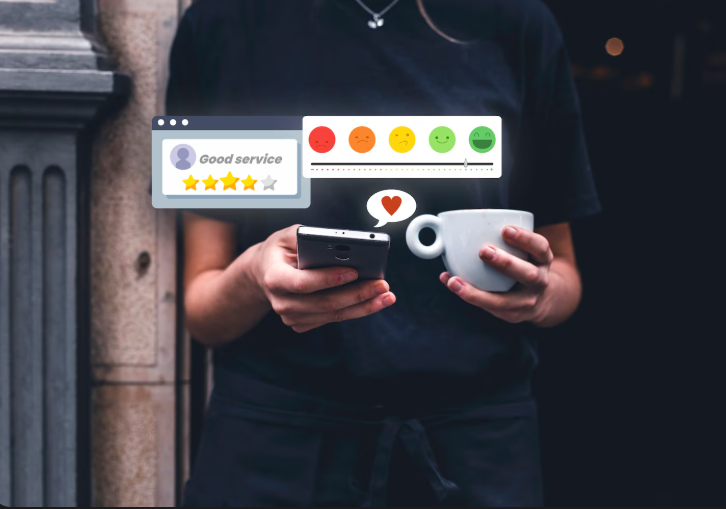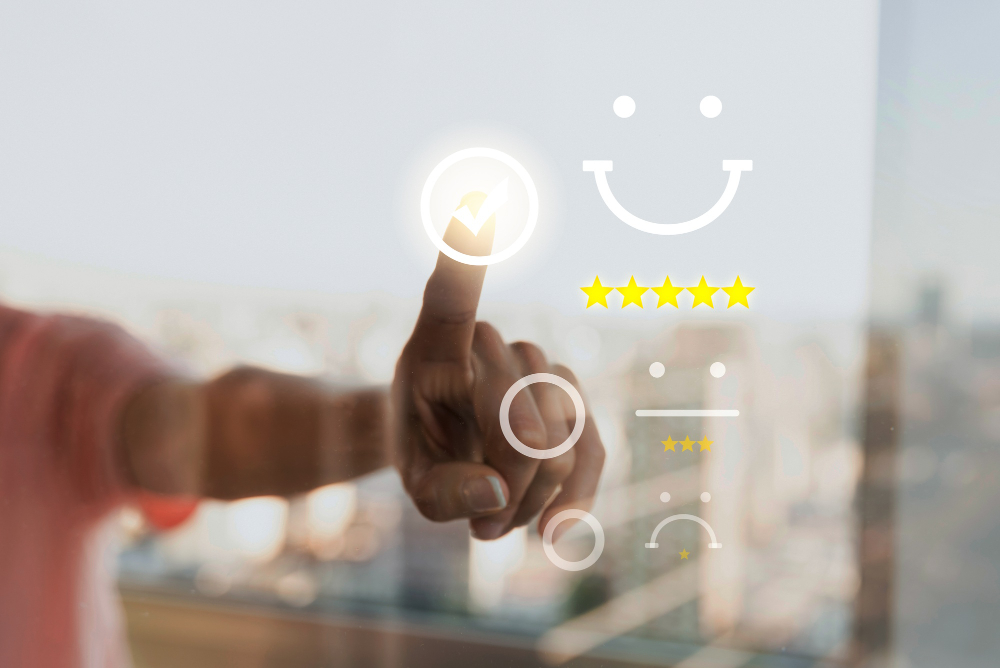Introduction
Every brand faces the possibility of unexpected disruptions unexpectedly; online backlash, misinformation, negative reviews, viral criticism, or sudden PR challenges. As we enter 2026, businesses understand that crisis moments don’t just impact short-term engagement; they influence long-term credibility and brand trust. With digital platforms shaping public perception almost instantly, effective crisis management has become a critical foundation of brand stability. Today, audiences expect companies to respond quickly, transparently, and responsibly whenever something goes wrong, which makes staying prepared more important than ever.
This guide provides a clear and comprehensive look at crisis management and its strong connection to Online Reputation Management (ORM). It walks you through the essential things every brand must know before choosing a strategy, along with five important crisis management insights shaping 2026. Whether you are safeguarding a corporate reputation or building resilience for a fast-growing brand, this guide equips you with direction, clarity, and practical understanding. Explore AiPlex ORM for advanced solutions, AI-powered monitoring, and real-time crisis defense tailored for modern businesses.
Things to Know Before Exploring Crisis Management and ORM
Before selecting tools or strategies, brands must understand how crisis management has evolved in the digital-first world. A crisis is no longer defined only by internal mishaps or corporate errors; it now includes viral customer complaints, false narratives, security breaches, and even competitor-driven content that can influence perception. ORM plays a central role by monitoring conversations, identifying threats early, and helping brands respond with clarity and confidence. Understanding key components of today’s reputation ecosystem will help you create a more effective crisis response system.
The Shift Toward Real-Time Crisis Response
The speed at which information spreads has changed how brands must react. Real-time crisis response is now the standard, not an option. Social media platforms amplify messages instantly, meaning delays can quickly escalate into larger issues. Brands that monitor and respond in real time reduce damage, control narratives, and maintain customer trust. Quick action can turn a potential crisis into an opportunity to show responsibility and transparency.
This shift has also increased the need for automated alerts, sentiment tracking, and dedicated response teams. Real-time visibility helps brands detect issues early, while fast decision-making prevents minor problems from evolving into brand-threatening events.
Importance of Reputation Risk Assessment
Understanding potential vulnerabilities before a crisis happens is essential. Reputation risk assessment helps brands identify weak points such as customer dissatisfaction patterns, service gaps, communication issues, or sensitivity around product performance. By knowing what could trigger negative attention, companies can build stronger preventive systems that reduce exposure.
In 2026, brands rely on data-driven insights and advanced analytics to anticipate risks rather than simply reacting to them. This proactive approach ensures preparedness and reduces the chances of unexpected damage.
How Audience Sentiment Influences Crisis Impact
Audience sentiment plays a major role in determining how severe a crisis becomes. Negative sentiment spreads quickly, especially when customers feel unheard or disappointed. Understanding emotions behind public conversations helps brands shape an appropriate tone, acknowledgment, and response strategy.
Sentiment analysis tools help companies evaluate reactions and adjust messaging accordingly. When a brand responds with empathy, calmness, and clarity, it shows professionalism and helps reduce tension even during difficult moments.
The Role of Transparent Communication
Transparency is a powerful trust-building tool. Whether addressing a system outage, a defective product, or a misunderstanding, audiences expect brands to communicate openly. Clear communication prevents speculation, misinformation, and fear, which can worsen a crisis.
Brands that openly explain issues, provide timelines, and share updates are more likely to maintain loyalty. Transparency also allows audiences to view the brand as accountable and responsible, reinforcing long-term trust.
Importance of Post-Crisis Recovery and ORM Support
The work doesn’t end once the crisis subsides. Post-crisis recovery ensures that brands repair sentiment, rebuild trust, and monitor conversation trends after the situation settles. ORM plays a key role by tracking ongoing narratives and ensuring no lingering misinformation continues to affect the brand.
This stage also includes review recovery, content restoration, and strengthening digital reputation through continuous monitoring. A strong recovery phase helps brands emerge stronger and more resilient.
Top 5 Crisis Management Essentials for 2026
1. Comprehensive Social Media Crisis Monitoring
Social media remains the most sensitive space for crisis escalation due to its speed and wide reach. Monitoring platforms like Facebook, Instagram, X, LinkedIn, and TikTok helps brands identify early signs of trouble. Whether it’s a complaint gaining attention, a viral post, or a sudden spike in negative comments, social listening helps brands stay alert and respond before situations worsen.
In 2026, AI-driven monitoring tools allow brands to track sentiment shifts, keyword spikes, influencer commentary, and trending topics in real time. This comprehensive visibility helps businesses intervene quickly while maintaining clarity and composure during critical moments.
2. Multi-Platform Review and Feedback Management
Customer reviews influence purchase decisions and overall brand perception. A crisis can impact star ratings, Trustpilot feedback, Google reviews, or industry-specific platforms. Review monitoring ensures the brand stays aware of sudden rating drops or negative patterns that indicate customer dissatisfaction.
Proactive engagement helps brands address concerns with professionalism, empathy, and solutions. This builds credibility and prevents crises from escalating due to unresolved frustration. AiPlex ORM supports structured review management across major platforms to ensure brands maintain stability and trust.
3. Crisis Communication and Messaging Frameworks
A clear communication framework ensures that brands respond with consistency and confidence during crises. Without structure, responses may appear scattered or insensitive. A well-defined communication approach includes acknowledgment, clarity, transparency, and a calm tone.
Brands in 2026 rely on preset internal guidelines that streamline responses while ensuring accuracy. This prevents miscommunication and provides assurance to customers, stakeholders, and the general public.
4. Reputation Monitoring Across News and Media
News outlets and online publications significantly influence how the public interprets a crisis. Monitoring media coverage ensures brands understand how journalists, bloggers, and industry platforms are reporting the situation. Early awareness helps companies issue clarifications, correct inaccurate information, and maintain control of the narrative.
Media monitoring also helps brands identify potential PR risks and respond before misinformation spreads too widely. Staying aware of media coverage ensures fair representation and balanced communication.
5. Data-Driven Crisis Prevention and Early Threat Detection
Advanced analytics and predictive models help brands detect potential crises before they escalate. By analyzing customer behavior, feedback patterns, sentiment shifts, and recurring complaints, companies can see warning signs early. Prevention is one of the most effective crisis management strategies.
Early threat detection helps reduce long-term damage by allowing brands to solve underlying issues in advance. With real-time data insights, businesses gain clarity and stay better prepared for unexpected challenges.
Why Choose AiPlex ORM
AiPlex ORM provides industry-leading crisis monitoring and reputation management solutions designed for the demands of 2026. With AI-powered threat detection, real-time sentiment tracking, and expert crisis response teams, AiPlex ensures brands stay protected across all platforms. From social media monitoring to media tracking, review management, and misinformation control, the company offers a complete protection system tailored to each brand’s needs.
Their transparent processes, ethical monitoring practices, and fast response capabilities help brands navigate difficult moments with confidence. AiPlex ORM also handles post-crisis recovery, ensuring brands regain trust, restore credibility, and maintain long-term stability in the digital landscape.
Conclusion
Crisis management has become an essential part of modern brand strategy, especially as digital interactions continue to shape public perception. With conversations moving faster and expectations rising higher, brands must remain proactive, transparent, and prepared. Understanding the key elements of crisis management and combining them with powerful ORM strategies ensures that companies stay resilient, adaptable, and trusted.
With the right partner; such as AiPlex ORM businesses gain real-time protection, expert guidance, and advanced AI-driven systems that help them manage challenges effectively. A strong crisis management framework doesn’t just defend your brand; it strengthens its long-term reputation and builds deeper customer loyalty.
Summary
This 2026 guide covered the essential components of crisis management and its close integration with ORM. From real-time response and sentiment tracking to transparent communication, review management, and early threat detection, these strategies help businesses stay prepared and protected. The top five crisis management essentials provide a solid foundation for reducing risks and strengthening your digital presence. With AiPlex ORM’s comprehensive monitoring tools and expert support, brands can navigate challenges confidently and maintain a strong, trusted reputation in today’s fast-paced digital world.








